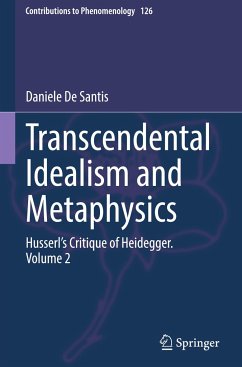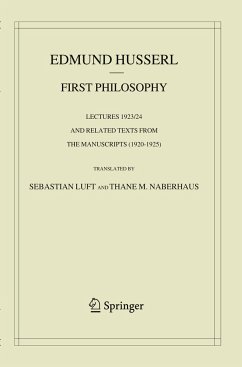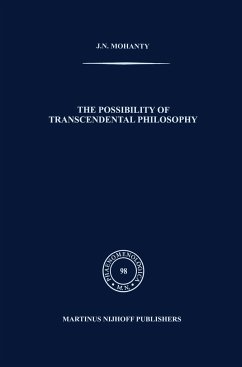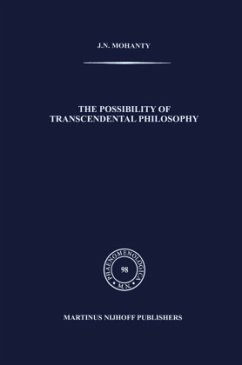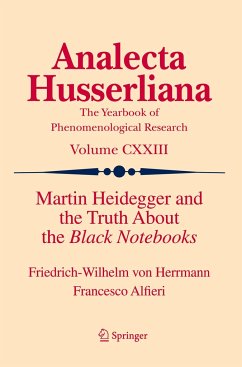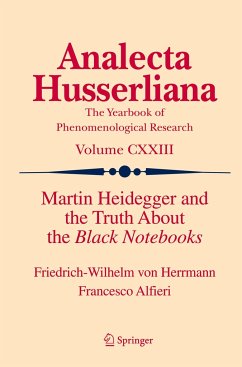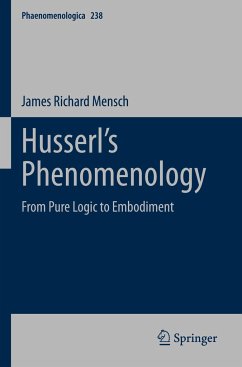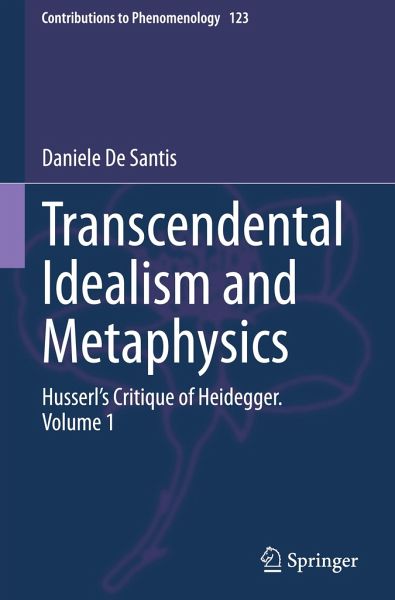
Transcendental Idealism and Metaphysics
Husserl's Critique of Heidegger. Volume 1
Versandkostenfrei!
Versandfertig in 1-2 Wochen
92,99 €
inkl. MwSt.
Weitere Ausgaben:

PAYBACK Punkte
46 °P sammeln!
Winner of the Edward Goodwin Ballard Prize as announced at the Society for Phenomenology and Existential Philosophy Meeting on September 27, 2024The book offers a systematic reconstruction of the disagreement between Husserl and Heidegger from the former's perspective, but without falling into any form of Husserlian apologetics. The main thesis is that Husserl's critique of Heidegger's existential analytics as a form of philosophical anthropology entails a deeper fundamental thesis, namely that Heidegger confuses the object of first philosophy (the transcendental determination of the subject) ...
Winner of the Edward Goodwin Ballard Prize as announced at the Society for Phenomenology and Existential Philosophy Meeting on September 27, 2024
The book offers a systematic reconstruction of the disagreement between Husserl and Heidegger from the former's perspective, but without falling into any form of Husserlian apologetics. The main thesis is that Husserl's critique of Heidegger's existential analytics as a form of philosophical anthropology entails a deeper fundamental thesis, namely that Heidegger confuses the object of first philosophy (the transcendental determination of the subject) with metaphysics (in the Husserlian sense of the expression). Addressing the Husserl-Heidegger confrontation, this text provides the first systematic reconstruction of Husserl's conception of the system of philosophy from the perspective of his later works, with a special focus on the Cartesian Meditations. At stake in Husserl's critique of Heidegger's philosophy in Being and Time is the refusal to transcendentalize the irrational aspects and nature of our human existence. This first volume addresses Husserl's doctrine of transcendental idealism with the aim of elucidating the distinction between first philosophy, second philosophies and what Husserl calls last philosophy. This volume appeals to students and researchers.
The book offers a systematic reconstruction of the disagreement between Husserl and Heidegger from the former's perspective, but without falling into any form of Husserlian apologetics. The main thesis is that Husserl's critique of Heidegger's existential analytics as a form of philosophical anthropology entails a deeper fundamental thesis, namely that Heidegger confuses the object of first philosophy (the transcendental determination of the subject) with metaphysics (in the Husserlian sense of the expression). Addressing the Husserl-Heidegger confrontation, this text provides the first systematic reconstruction of Husserl's conception of the system of philosophy from the perspective of his later works, with a special focus on the Cartesian Meditations. At stake in Husserl's critique of Heidegger's philosophy in Being and Time is the refusal to transcendentalize the irrational aspects and nature of our human existence. This first volume addresses Husserl's doctrine of transcendental idealism with the aim of elucidating the distinction between first philosophy, second philosophies and what Husserl calls last philosophy. This volume appeals to students and researchers.






